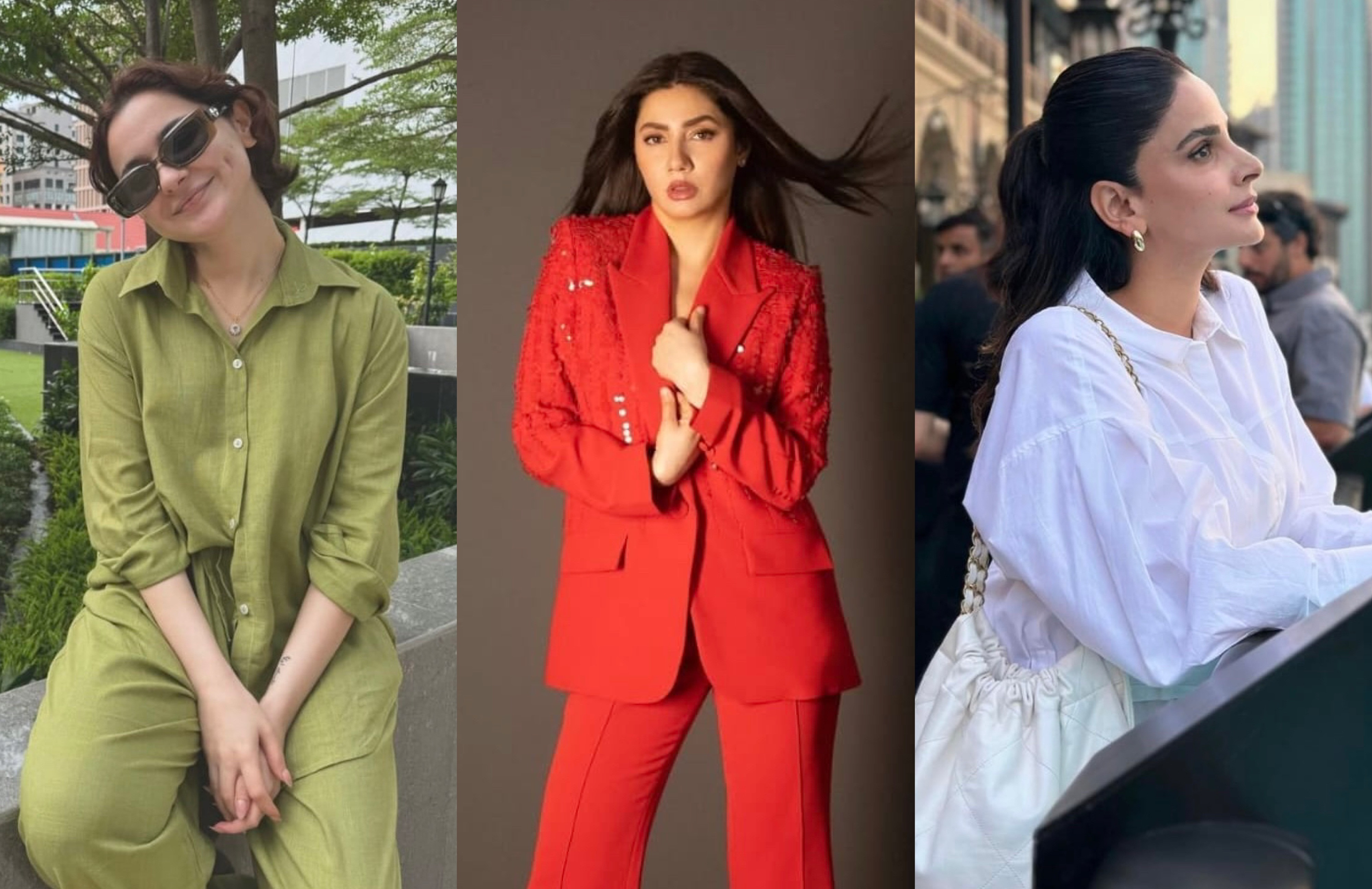
Monochromatic fashion, long a staple of minimalism, is experiencing a dynamic revival. From the runways of Paris to the streets of Bangkok, this elegant approach to dressing – centred on a single colour or its various shades – is being reinterpreted. Far from being simple or predictable, monochromatic dressing offers an opportunity for fashion enthusiasts to experiment with texture, fabric, and proportion.
This concept has deep roots. Historically, monochromatic dressing reflected cultural traditions or societal hierarchies – whether in the muted palettes of ancient Grecian robes or the ceremonial garb of East Asia. In the 20th century, it found a more contemporary voice through visionaries like Coco Chanel, whose little black dress epitomised sophistication, and Yves Saint Laurent, who elevated power dressing with striking tonal suits. Today, the style continues to evolve, as celebrities and influencers make the trend their own.
The revival of green
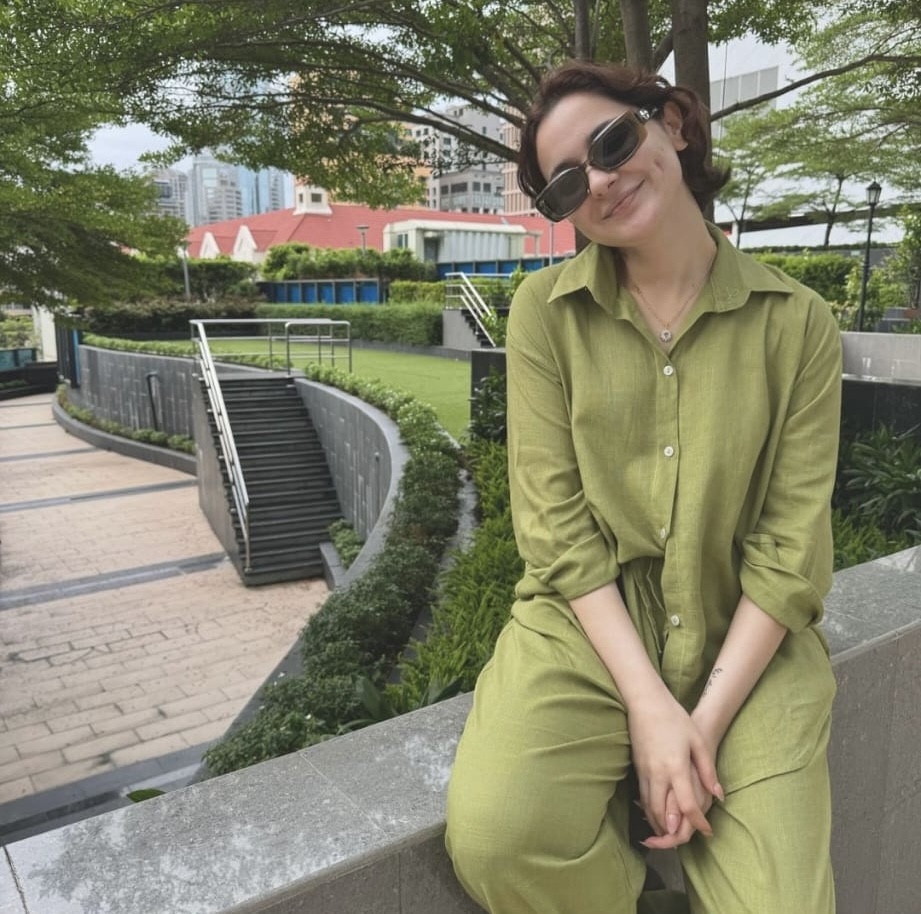 Hania Aamir, during her summer getaway to Thailand, encapsulated the essence of vacation chic in an all-green linen co-ord. Her ensemble featured a breezy button down paired with wide-legged trousers in a sage hue. The natural texture of the linen perfectly complemented the tropical backdrop, exuding an effortless charm. The choice of tonal consistency made the look feel cohesive, while the airy silhouette allowed for freedom of movement – a hallmark of relaxed luxury. Paired with minimal makeup and tousled hair, Hania's outfit was a lesson in how monochromatic dressing can harmonise with both the environment and the mood of an occasion.
Hania Aamir, during her summer getaway to Thailand, encapsulated the essence of vacation chic in an all-green linen co-ord. Her ensemble featured a breezy button down paired with wide-legged trousers in a sage hue. The natural texture of the linen perfectly complemented the tropical backdrop, exuding an effortless charm. The choice of tonal consistency made the look feel cohesive, while the airy silhouette allowed for freedom of movement – a hallmark of relaxed luxury. Paired with minimal makeup and tousled hair, Hania's outfit was a lesson in how monochromatic dressing can harmonise with both the environment and the mood of an occasion.
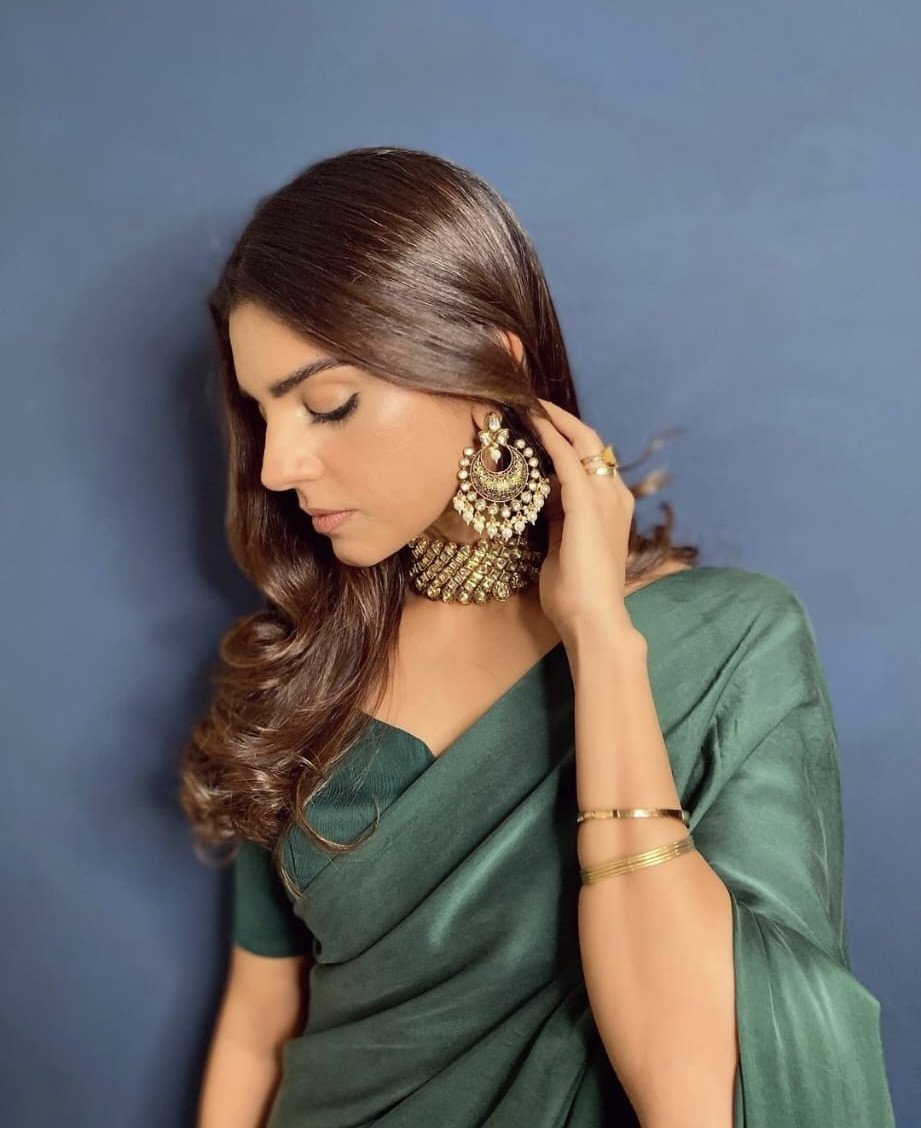
Sanam Saeed embraced a deeper shade of green in a silk saree that once belonged to her late mother. Posted on Instagram, the rich, emerald drape skimmed her frame with graceful fluidity. The glossy texture of the silk amplified the colour's intensity, and her choice of gold statement earrings and necklace brought forth a regal touch. Sanam's look celebrated the elegance of traditional South Asian attire, proving that monochromatic dressing can honour heritage while remaining utterly contemporary.
Statement-making red
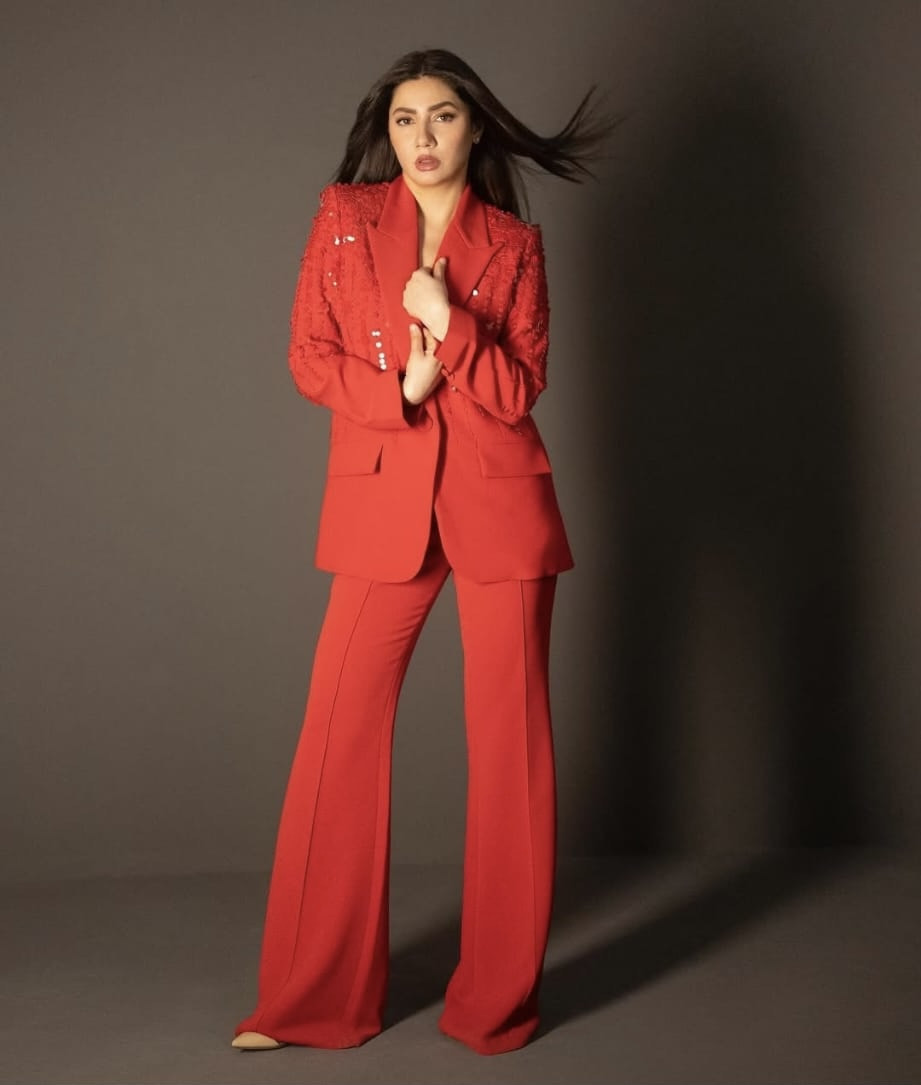
Few colours carry the weight of red, a hue synonymous with confidence and allure. Mahira Khan demonstrated its commanding presence in a crimson suit chosen for a photoshoot posted on her Instagram account earlier this month. The tailored jacket, detailed with intricate beadwork, was both structured and striking, while the matching trousers extended the drama. Her choice to forgo excessive accessories ensured the focus remained on the monochrome palette, while her classic red lip tied the look together.
The purity of white
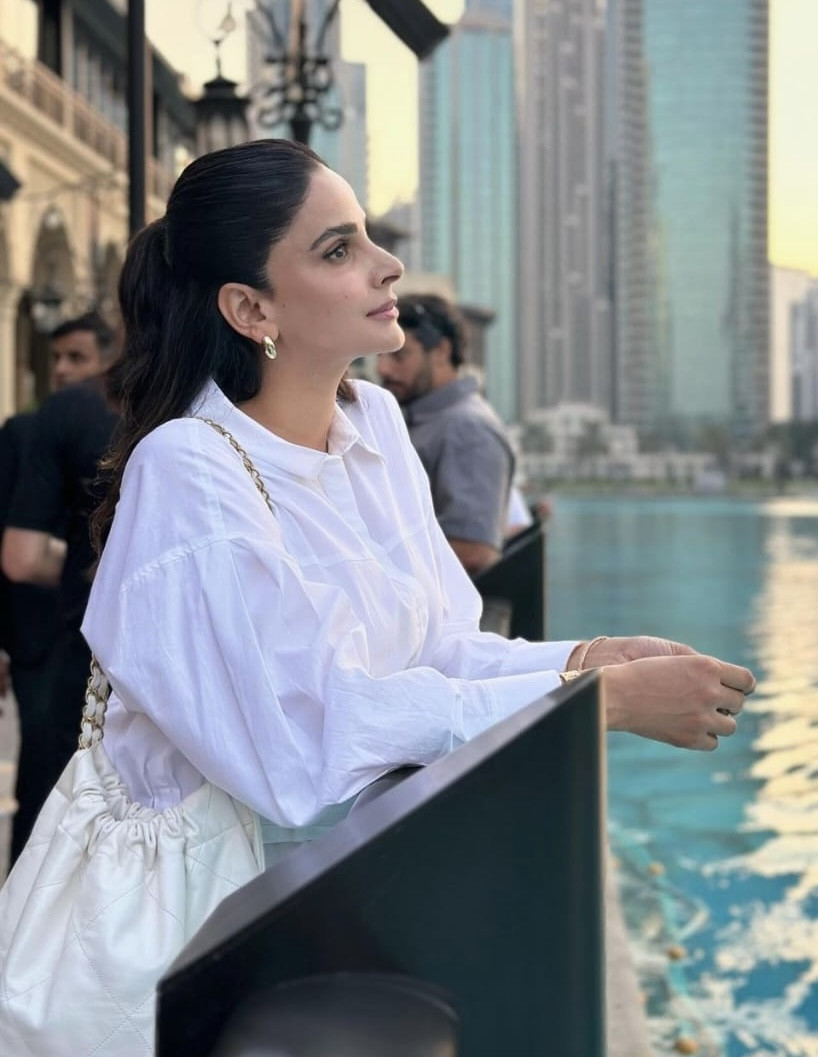
While monochrome often leans on vibrant shades, the simplicity of white offers its own brand of refinement. Saba Qamar, photographed in Dubai in September, embraced an all-white ensemble that radiated understated luxury. She wore a crisp, button-down midi dress that combined structure with femininity. The dress's tailored silhouette highlighted her poise. Her decision to accessorise with a white Chanel tote underscored her commitment to the theme, with gold jewellery providing the only contrast.
Monochromatic fashion is more than a simple style choice, it's a way to use colour strategically to influence both mood and perception. Colours have the power to communicate emotions, set a tone, and even affect how we feel physically.
For example, an outfit in shades of blue can create a sense of calm and trust, while red hues make a bold, passionate statement. By carefully selecting colours within a single palette, you can tailor your look to align with the message you want to send or the mood you wish to evoke.
Have something to add to the story? Share it in the comments below.

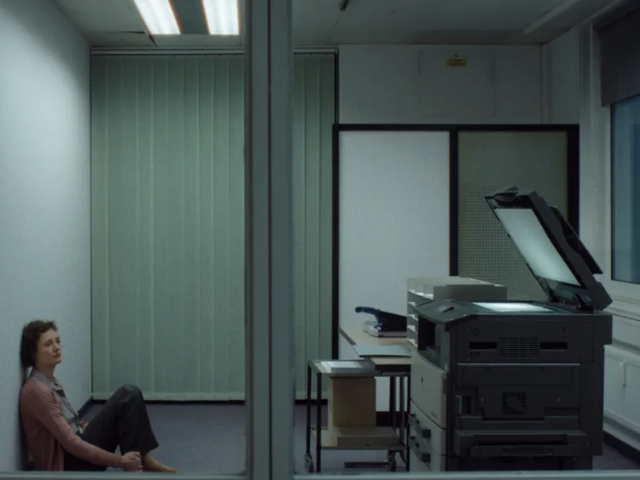




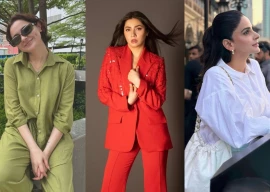

1729930993-0/WhatsApp-Image-2024-10-26-at-08-52-06-(2)1729930993-0-270x192.webp)
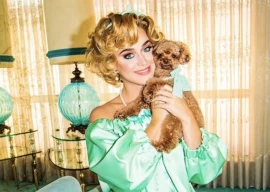








COMMENTS
Comments are moderated and generally will be posted if they are on-topic and not abusive.
For more information, please see our Comments FAQ